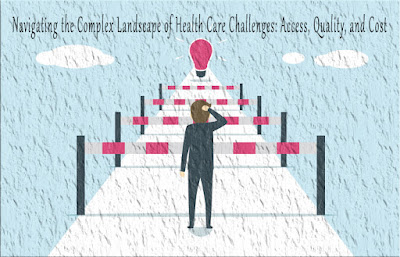Introduction
In today's era, where diseases loom large, safeguarding your health through proactive measures is paramount. This comprehensive guide explores effective strategies to maintain robust health across different stages of life.
1. Healthy Eating Habits
A balanced diet is fundamental for overall health:
- Nutrient-Rich Foods: Include fruits, vegetables, whole grains, lean proteins, and healthy fats.
- Hydration: Ensure adequate water intake for bodily functions.
- Minimize Processed Foods: Reduce consumption of sugary snacks and processed foods.
2. Regular Physical Activity
Exercise is vital for disease prevention and well-being:
- Cardiovascular Fitness: Aim for 150 minutes of moderate-intensity exercise weekly.
- Strength Training: Incorporate exercises to build muscle and maintain bone health.
- Flexibility and Balance: Practice yoga or tai chi for flexibility and fall prevention.
3. Quality Sleep
Sleep plays a crucial role in immune function and overall health:
- Sleep Hygiene: Maintain a consistent sleep schedule and create a conducive sleep environment.
- Recommended Duration: Adults benefit from 7 to 9 hours of sleep per night.
4. Stress Management
Effective stress management promotes resilience and reduces disease risk:
- Mindfulness Techniques: Practice meditation or deep breathing exercises.
- Physical Activity: Engage in activities like walking or swimming to relieve stress.
- Supportive Relationships: Cultivate meaningful connections for emotional well-being.
5. Routine Health Check-ups
Early detection through regular screenings is key to managing health:
- Annual Check-ups: Schedule regular visits with your healthcare provider.
- Immunizations: Stay current with recommended vaccines.
- Screening Tests: Undergo screenings such as mammograms and blood pressure checks as advised.
6. Maintaining a Healthy Weight
Achieving and maintaining a healthy weight reduces disease risk:
- Balanced Diet: Monitor calorie intake and make nutritious food choices.
- Physical Activity: Combine regular exercise with healthy eating habits.
- Sustainable Lifestyle: Adopt habits that support long-term weight management.
7. Avoiding Harmful Substances
Limiting exposure to harmful substances protects overall health:
- Tobacco and Smoking: Quit smoking and avoid secondhand smoke.
- Moderate Alcohol Consumption: Limit alcohol intake for heart and liver health.
8. Environmental and Occupational Safety
Protect yourself from environmental hazards:
- Safety Precautions: Use protective gear in hazardous workplaces.
- Indoor Air Quality: Maintain good air quality at home and work.
9. Emotional Well-being
Prioritize mental health for overall well-being:
- Seek Support: Consult a therapist for stress management and emotional health.
- Self-Care: Engage in activities that promote relaxation and well-being.
10. Continuous Learning and Adaptation
Stay informed and adjust health habits as needed:
- Health Education: Stay updated on health guidelines and recommendations.
- Adaptability: Modify lifestyle habits based on aging or changing health needs.
Conclusion
By integrating these practices into your daily life, you can significantly enhance your ability to prevent diseases and maintain optimal health throughout your life. Remember, proactive health management and regular medical care are essential for a healthier and more fulfilling life journey.
References
- Centers for Disease Control and Prevention (CDC)
- World Health Organization (WHO)
- Mayo Clinic


No comments:
Post a Comment